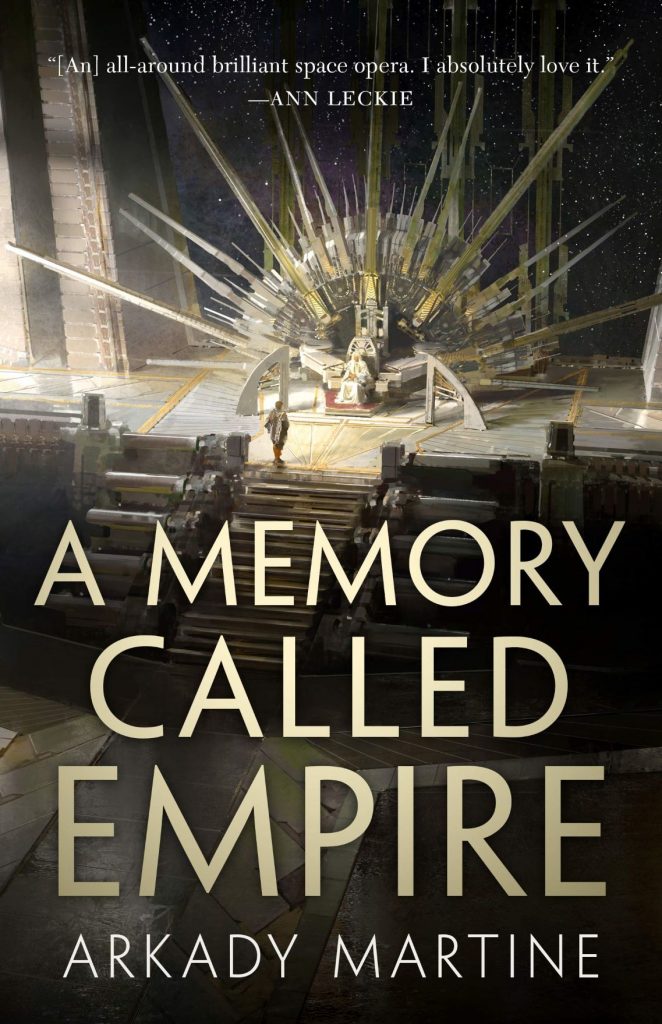I was very excited for A Memory Called Empire when I purchased it last Winter. I was, of course, in the middle of a vowed non-stop reading of the Wheel of Time, so I didn’t let myself read it then. Yet the excitement remained. A space opera based on Roman (or perhaps more Byzantine, if you prefer) history, what’s not to like?
I was slightly disappointed in reading by the fact that the author was apparently a fan of the literature history of Rome, not so much the economics, military, and technology. There is endless reference to poetry. Poetry. I mean really. The legions are mostly a hand-wavy reference to big people with guns and space cruisers of the most deadly sort. The empire is expanding without major resistance, something that was never true at any time in Roman history.
Still, the empire is translated well into the future, it feels like a plausible future reality, not crudely artificial. There are gaps in the technology that seem vague plot holes – again the author strikes me as a literature and politics guy more than a numbers and logistics guy. The one technology that does exist clearly, a brain implant that basically connects to the memories of past generations, reminds me of a inspiration of Scalzi’s machine, especially when combined with the sassy characters. If I had to guess, this is John Scalzi’s Old Man’s War style shifted into the perspective of a fan of the literature and court of the Eastern Roman empire.
I may have been biased coming in on hearing that this was a first-time author. I felt the characters were okay, but lacked great depth and diversity. There were a many moments where things were told rather than shown. It gave it a slightly academic tone at times. Yet the academic tone rather fit the literature drama, so perhaps that was a deliberate, or at least functional choice.
Perhaps the greatest thing about this book was that it was a unique and interesting twist on a classical space opera, without being outright strange and weird, as all too often happens with scifi. My other favorite thing about the book was the strong imagery and cohesive symbolism that permeated the books. This is the sort of thing we don’t see as much in our vast, diverse, and therefore rather chaotic modern world. Great empires of the past, particularly the late Romans, had a very powerful symbolism that made their empires strong simply by making them feel so inevitable and overwhelming to the senses. That is not something I believe I have seen reproduced in literature to any degree, and stands out here as one of the strengths shown here.

